Nearly all loudspeakers are alike in construction. But is there a reason behind this? Is there a secret rule that demands speakers to be built in a rectangular form? We looked into the loudspeaker form and the reason why it’s all so square.
The basics: How is sound created in a loudspeaker?
At the end of the 19th century, resourceful scientists discovered the functionality of the dynamic loudspeakers as they are still used today. The most important components are a ring-shaped magnet and an iron core in the middle. Between them is a coil through which current flows. When the music converted into electrical signals flows through the coil, it moves back and forth between two magnetic fields (one permanent and one alternating): the coil vibrates.
The tone is produced by the fact that a membrane is attached to the coil, which vibrates accordingly. Its movement creates pressure and sets the air in motion: sound waves move through the room.
So far, so good. But if we were to leave it at this minimalist construction, the sound would only be quiet and unclear. The reason: the movement of the membrane creates pressure in front of it and negative pressure behind it. But with an open loudspeaker, both are balanced and neutralized. Each tone loses its power. To prevent this, the front and rear sides of the loudspeaker must be separated from each other. This works most effectively with a tightly closed casing.
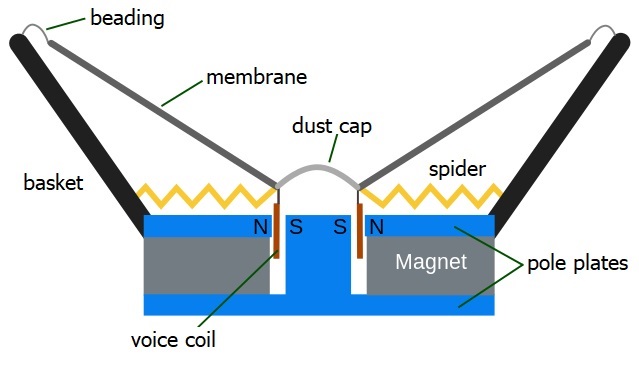
What material sounds the best?
Loudspeaker material has to meet certain requirements, so that it positively impacts the sound.
- Material used has to be close-knit and stiff so that the device doesn’t vibrate
- The casing have to be well insulated so that the sound can’t escape
- Airtight processing must be possible so that the sound waves cannot escape through any cracks
Fundamentally the casing could be made of stone or concrete. That’s why Teufel made an experimental speaker out of concrete. However, its heavy weight and complications to create the speaker outweighed the acoustical benefits.
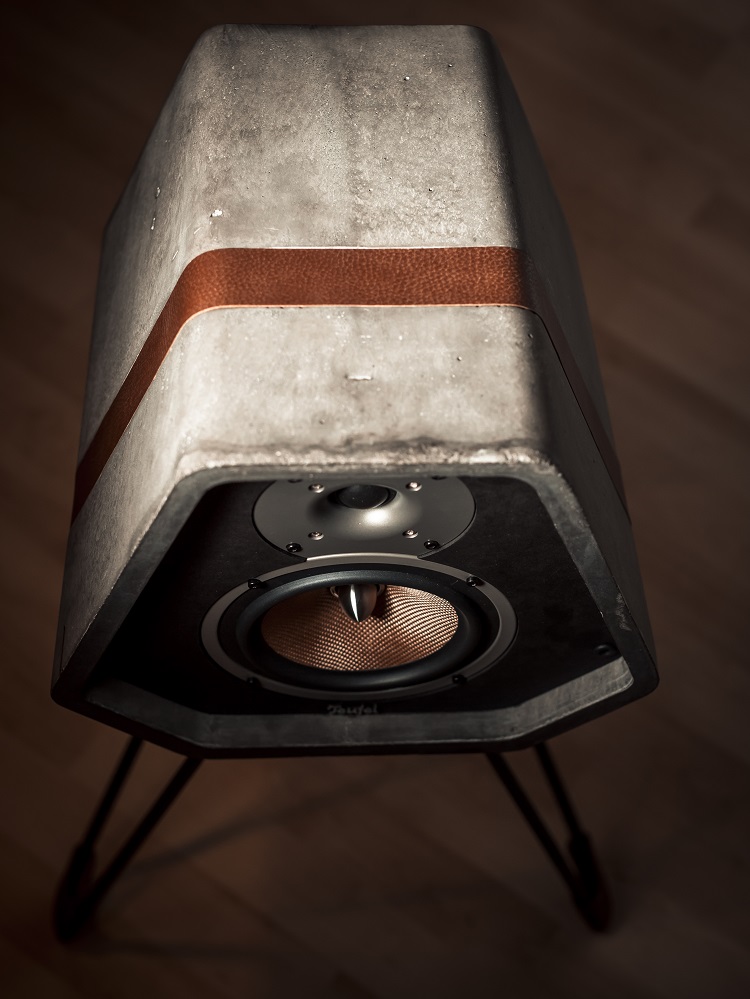
More widespread, because cheaper and easier to process, are real wood, chipboard, MDF boards. These boards are glued from wood fibers and are firm, dense and rigid.
Does a loudspeaker case have to a box?
Since the casing of a loudspeaker has a specific task to fulfill, the sound is primarily determined by the way it works, not by its appearance. The ratio of the actual loudspeaker to the size and volume of the cabinet is particularly important. This must be balanced so that the resonance behaviour is balanced and the sound can sound clear and without distortion.
Materials such as wood or MDF meet the physical requirements and can easily be installed in the form of a box with straight sides. This is certainly the reason for the predominantly box-shaped enclosures.
Let’s get spherical
There are quite a few loudspeaker enclosures that deviate from the standard and are designed in unusual shapes, for example as spheres. This is not only for aesthetic reasons, because the spherical shape offers advantages compared to the classic rectangular loudspeaker casing:
- Due to the rounded form the sides are exact opposite each other. That means that the sound is constantly circling round rather being stuck in a corner.
- Curved speaker better distributes sound into a room. The sound can be perceived in more places and aren’t lead to direct lactation by many other speakers.
- The walls of a curved speaker require less vibrations than the walls of a square shaped speaker.
But try to make a circle out of wood. It requires a lot of work. That meant Teufel needed another material to create a circle shaped speaker.
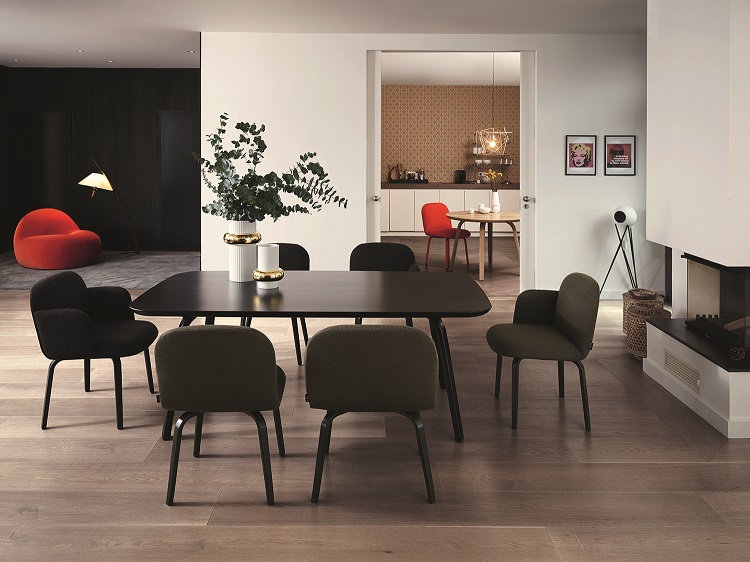
For loudspeaker casing one material really lends itself very well – porcelain. It can be molded into any form, it’s thick and very hard meaning it keeps the sound inside. The manufacturing process is, of course, very demanding, like our video demonstrates. That explains why porcelain made speakers can’t be made in mass. But for special edition speakers, such as the Teufel X Rosenthal, porcelain is the perfect material.
Luxury for the eyes and ears: Teufel X Rosenthal
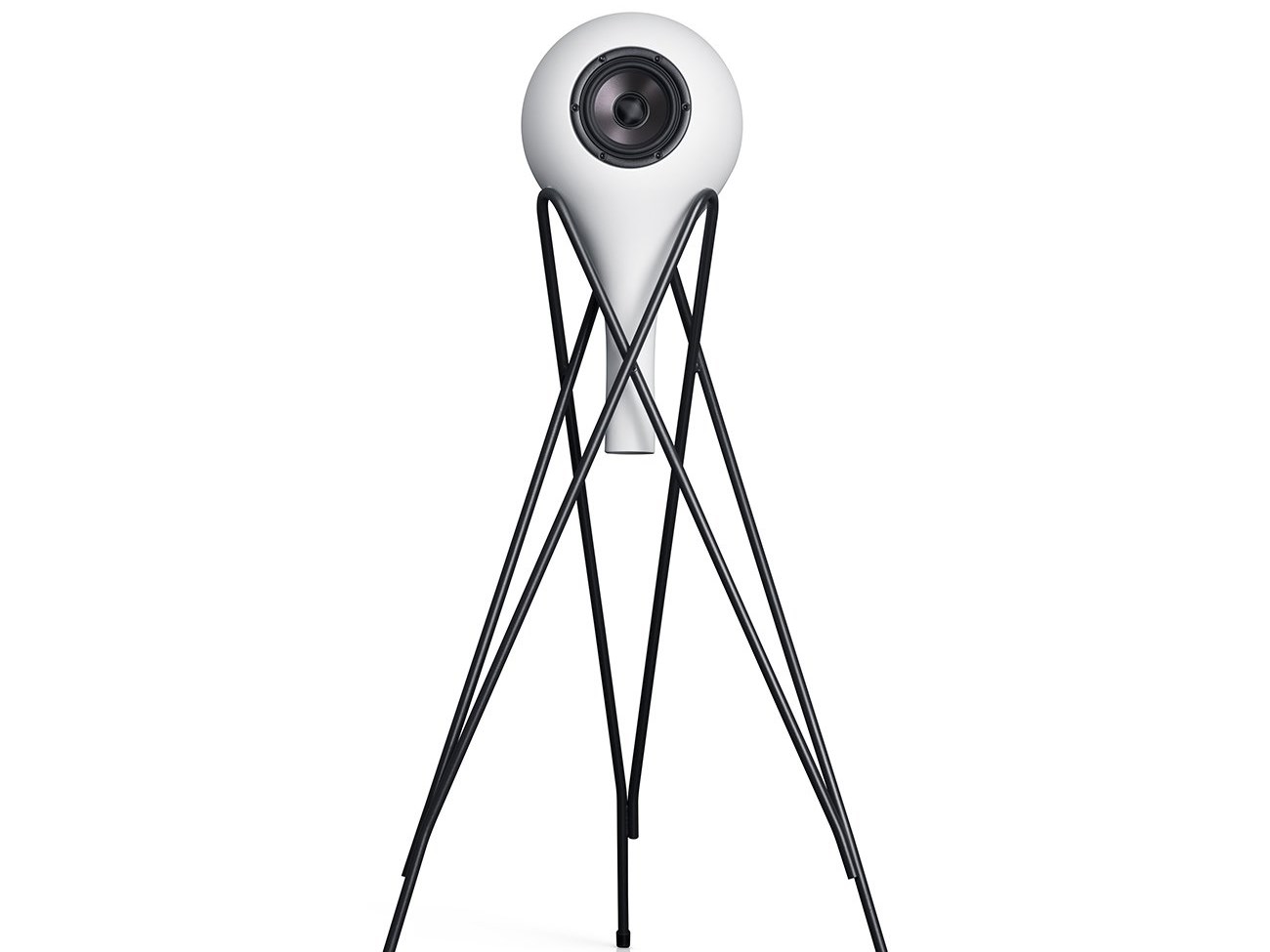
Round, made out of porcelain and decorative: the loudspeaker Teufel X Rosenthal has a unique material and unusual form. The white loudspeaker casing sits on a frame made out of steel enhancing the look of a room. And thanks to Bluetooth and Wi-Fi you can stream your favourite music easily via various streaming service.
The best features:
- Hand-finished casing made of hard porcelain for excellent sound – limited to 500 models.
- Thanks to integrated bass reflex the deep sounds sound heavy.
- Drop shape for linear frequency response.
- Music-streaming per app thanks integrated Raumfeld Technology
More of Teufel’s beauties
[product id=”27526,30988,31012″]
Conclusion: Square housing is practical but not necessary
- A wooden box is tried and tested loudspeaker form, but it’s the not the only option.
- The round form of a circle has a positive effect on the sound.
- The material properties are decisive for loudspeaker housings, porcelain fulfills these properties.
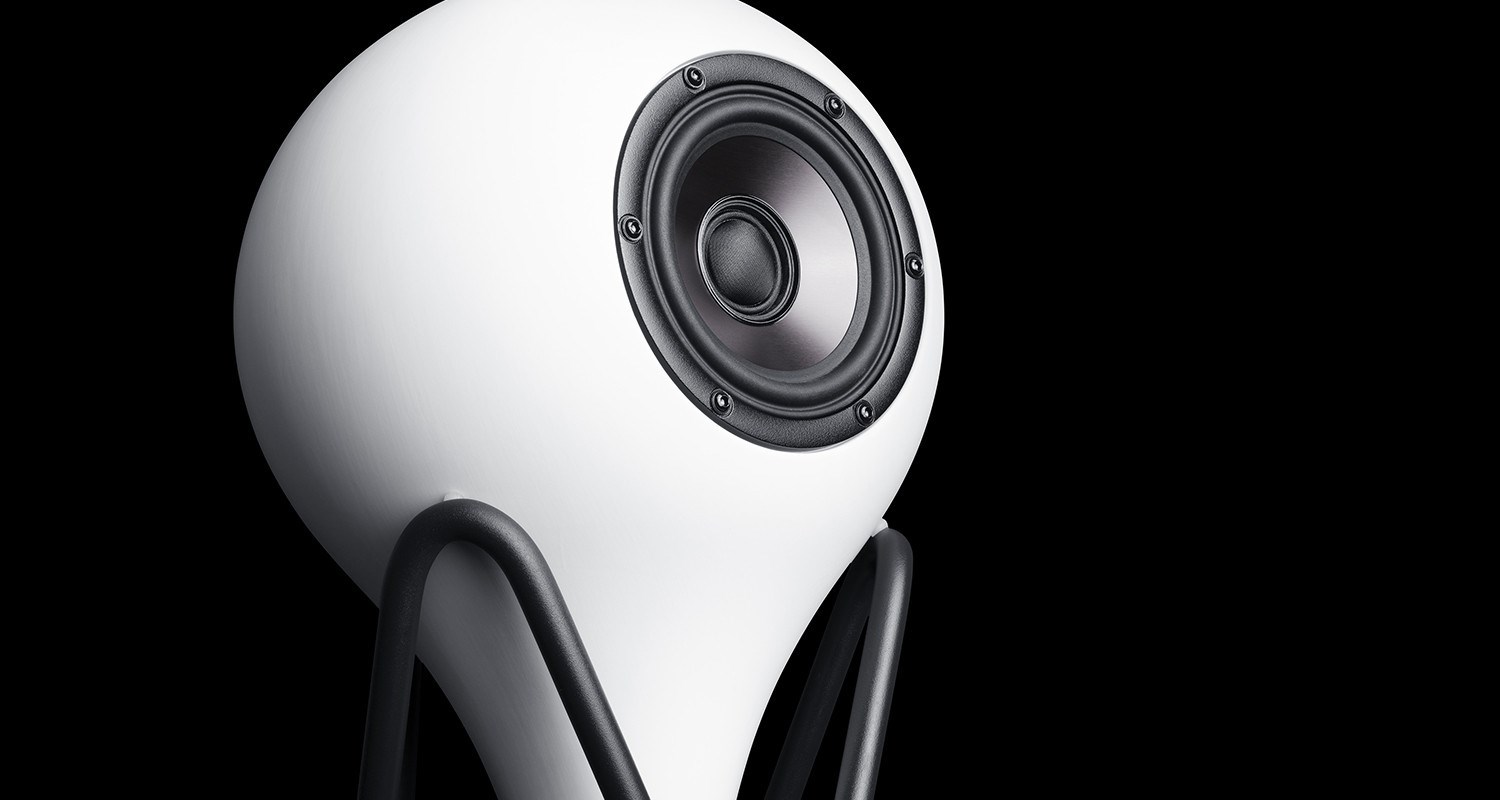
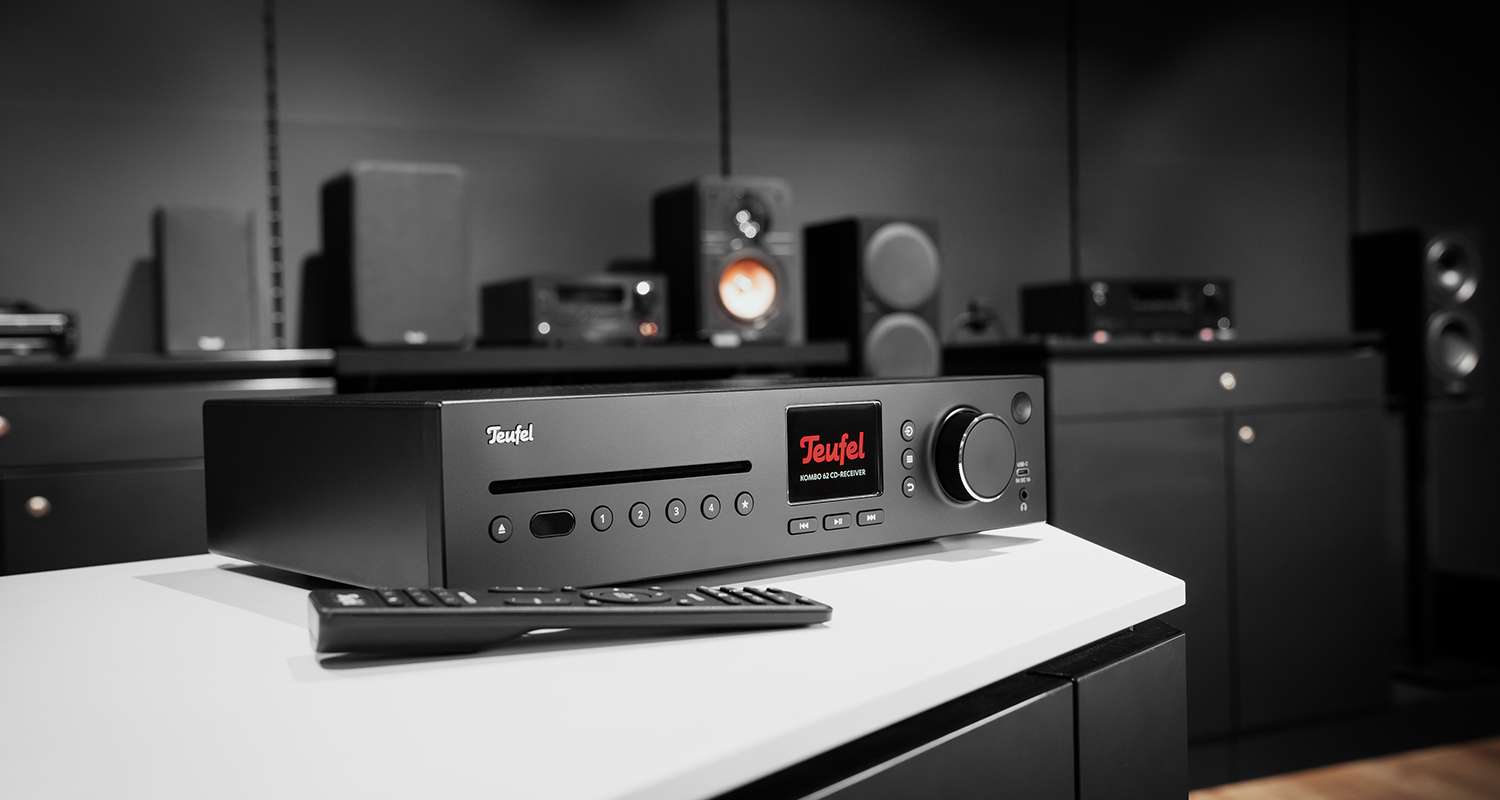

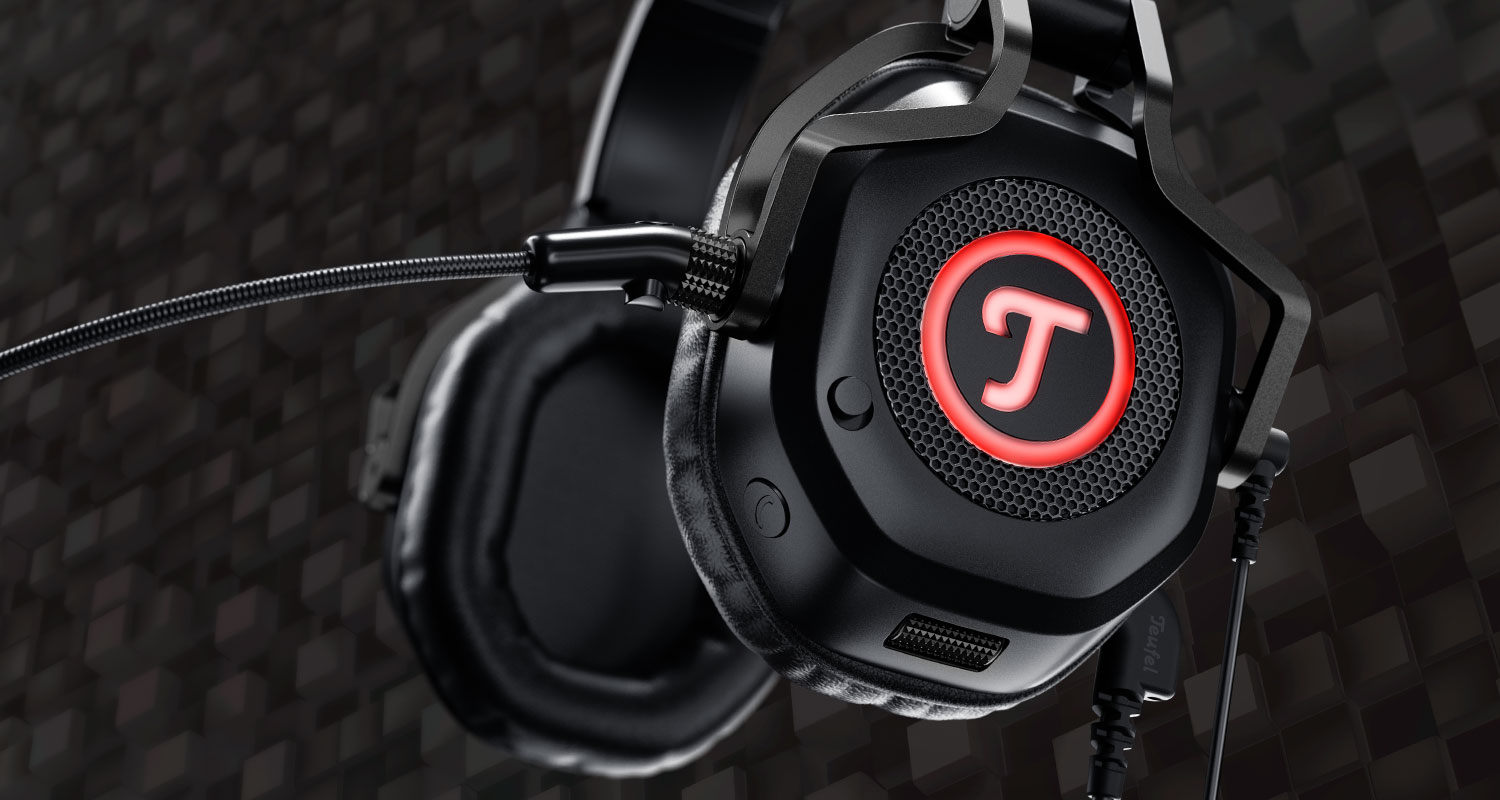
Leave a Reply